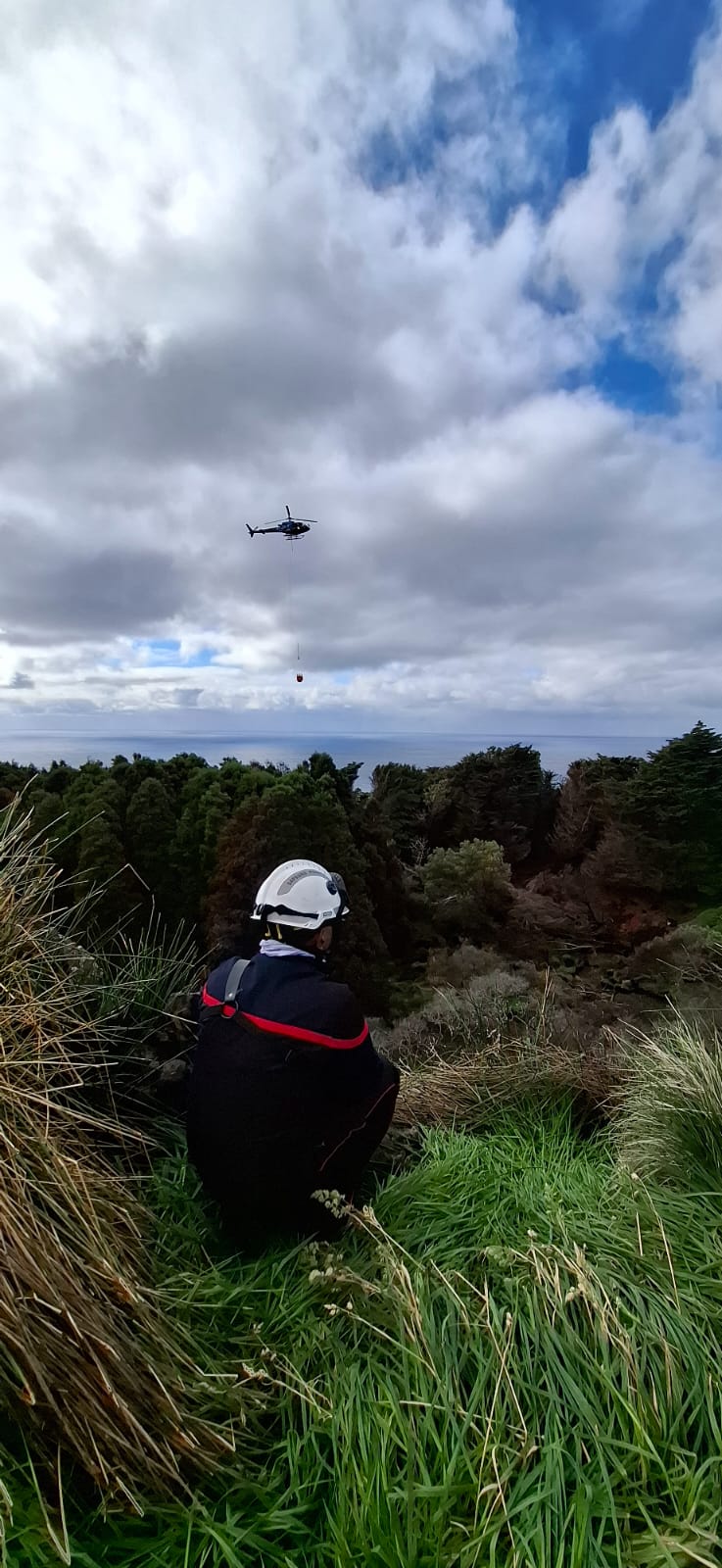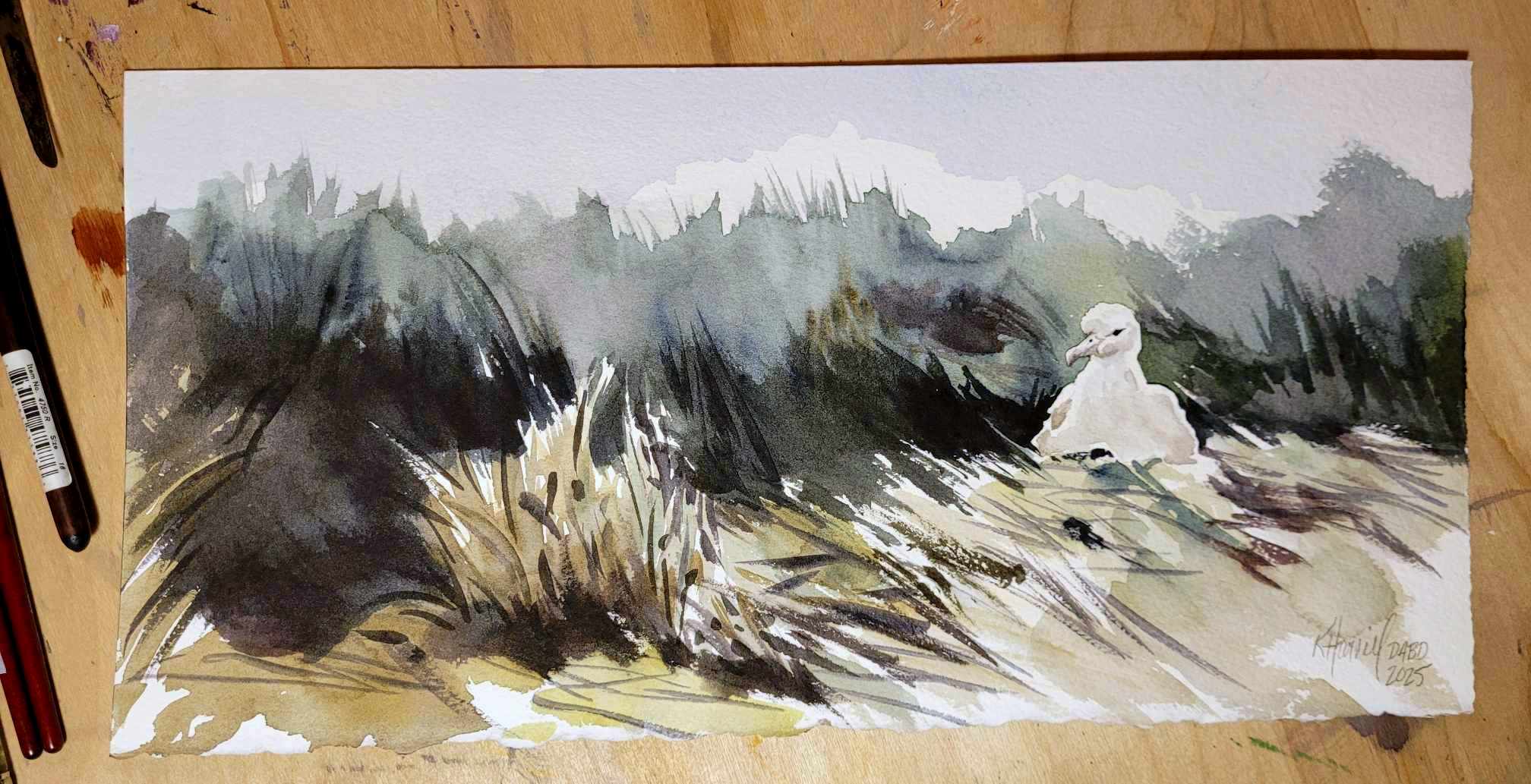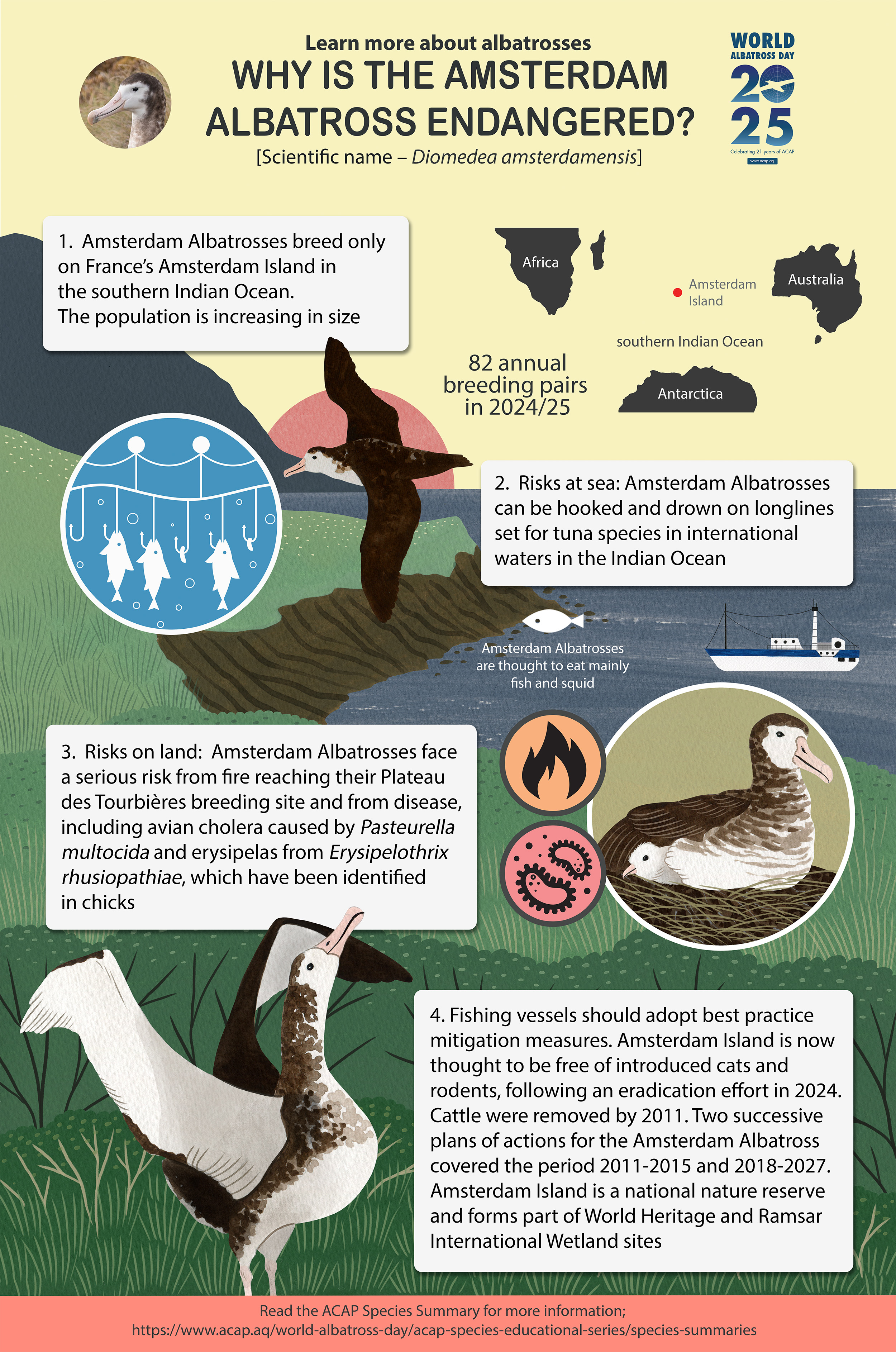
Water bombing the remaining hotspots on Amsterdam Island, April 2025, photograph by Elliott Bars, TAAF
ACAP Latest News has been reporting on the wildfire that burnt much of France’s Amsterdam Island in the southern Indian Ocean earlier this year, causing the island to be evacuated of its scientific and support staff as a precautionary measure. The recent media release dated 28 April from Terres australes et antarctiques françaises (TAAF) has some more positive news for the island’s threetened albatrosses. The following information comes via Google Translate.
“The Marion Dufresne, a supply ship for the French Southern and Antarctic Territories (TAAF), has just completed an eight-day stopover on Amsterdam Island, which has been evacuated since 16 January due to a vegetation fire directly threatening the Martin-de-Viviès base. The restoration of the base's essential facilities (water, energy, fire protectio and telecommunications) and the extinguishing of the three hot spots persisting within the extended perimeter of the base have enabled a mission of 14 technical and military personnel to remain on the island.”
The last three hot spots persisting around the Antonelli Crater, two kilometres from the base, were detected and extinguished with the support of a helicopter equipped with a "Bambi Bucket" water-dropping system. An inspection carried out by two firefighters at the Pointe Bénédicte site where the fire started, however, did not determine the causes of the blaze. A thermal imaging camera flight over the island revealed that no other hotspots are currently active on the island. The flight confirmed that the fire had spared the most sensitive habitats for birdlife, including: the plateau des Tourbières, breeding locality of the Endangered Amsterdam Albatross Diomedea amsterdamensis, a species endemic to the island; and the falaises d’Entrecasteaux, a breeding site of the Endangered Indian Yellow-nosed Albatross eThalassarche carteri and the Endangered Sooty Albatross Phoebetria fusca.

“Amsterdam Awareness”, watercolour of an Amsterdam Albatross chick by Kitty Harvill of Artists & Biologists Unite for Nature (ABUN) for World Albatross Day 19 June 2025, after a photograph by Jérémy Dechartre
“The flight over the eastern part of the island, however, confirmed that approximately 90% of the Phylica arborea forest, the only native tree in the French Southern Territories National Nature Reserve, were affected by the fire. On the scientific front, teams from the French Polar Institute (IPEV) winterized and assessed the scientific facilities on the base and at the Pointe Bénédicte site. The two refuges managed by the IPEV (Del Cano and Entrecasteaux), which were spared by the fire, were also winterized. All of these operations helped secure the base. In light of these results, the Prefect, the senior administrator of the TAAF (French Southern and Antarctic Territories), authorized the continued presence on the island of the district chief, the base doctor, and a team of 12 technical and military personnel who will be relieved during the Marion Dufresne's next visit to the area in August.”
ACAP Latest News will keep a lookout for further news, including whether field biologists will return to the island in August, allowing for monitoring and population censuses of the island’s ACAP-listed albatrosses and other breeding seabirds to be undertaken. It should also allow continued tracking for signs of any rodents that might have survived last year’s eradication operation.

The Amsterdam and Indian Yellow-nosed Albatrosses are the “feature species” for this year’s World Albatross Day on 19 June, with its theme of “Effects of Disease”. Both albatrosses are threatened by diseases on Amsterdam Island.
With thanks to Susan Micol.
John Cooper, Emeritus Information Officer, Agreement on the Conservation of Albatrosses and Petrels, 01 May 2025

 English
English  Français
Français  Español
Español